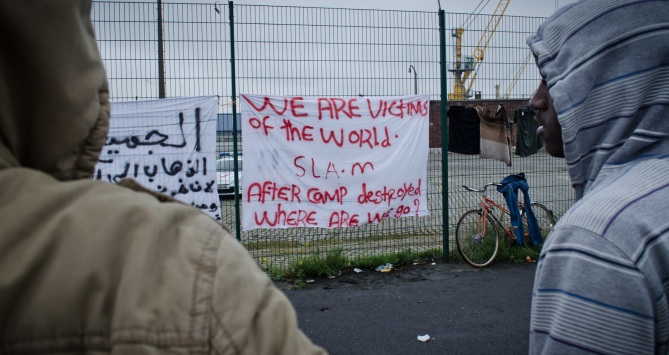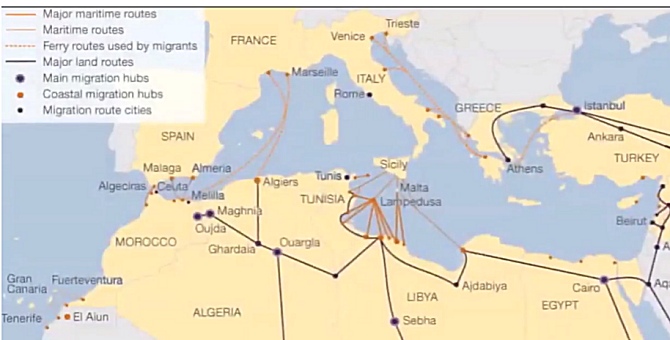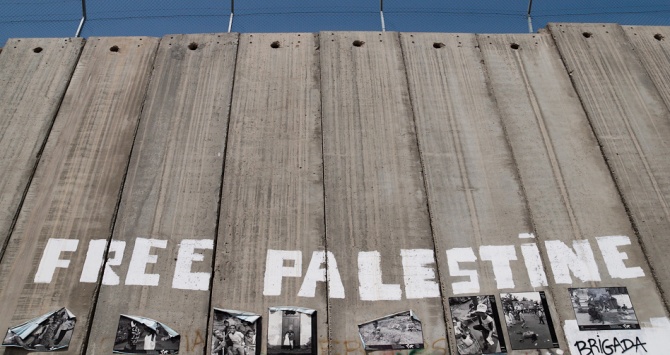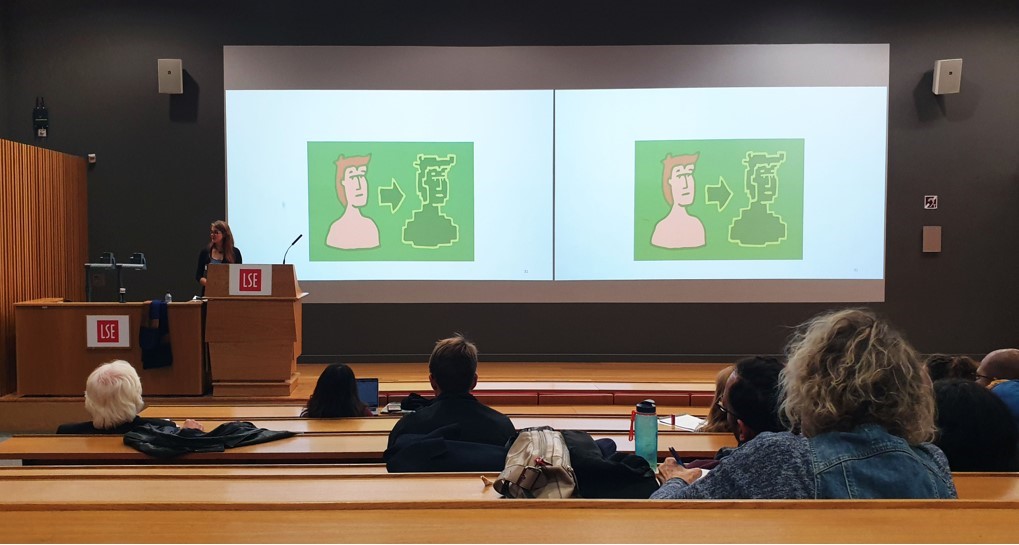David Cameron recently described the ongoing migrant crisis in Calais as “totally unacceptable” and called an emergency cobra meeting. Speaking to BBC Radio Scotland, Dr Ruben Andersson described the reaction to the current scenario in Calais as disproportionate and ineffective. Kris Gulati explains.
Many hoped that the fall of the Berlin Wall would bring an end to the sorts of barriers that were constructed to prevent people from entering or leaving a state.
This is not the case, however.
Fences in Bulgaria that were once used to keep people within the confines of the Soviet Union are now keeping people out of the country. Similarly, there has been a rise in fencing in Calais to prevent migrants from entering Britain.
Ruben Andersson describes fencing as a futile solution. “We have seen over many years now that fencing out migrants simply does not work”, he says. Rather, it elongates the problem. When one route is blocked, migrants seek more dangerous and dramatic alternatives – the “balloon effect”, as he terms it.
Instead of trying to simply ‘fence’ the problem away, Andersson argues that there are two alternatives. The first would be to develop new legal pathways for migrants and refugees, such as expanding existing UNHCR re-settlement programmes. The second would be greater levels of co-operation between states to reach a fairer and more humane solution to what is currently happening.
Migrant Numbers in Proportion
Dr Andersson also puts the Calais situation into proportion with what is happening across the globe. We are facing unprecedented levels of displacement, with approximately 60 million people being displaced worldwide last year.
Approximately 9 out of 10 refugees are being hosted in developing countries. Outside of Europe, Turkey has taken over 1 million Syrian refugees. Similarly, Lebanon has taken one million refugees, which amounts to a quarter of its population.
In comparison to Europe, the numbers are small. More than 180,000 people have entered southern Europe, while there are only 3,000 people in Calais trying to move into the UK – a “highly manageable number of people”, Andersson says.
In comparison to numbers taken in by Germany and Sweden, the UK is avoiding its fair share. Many migrants are fleeing from despotic governments, tyrannical regimes, or nations mired by poverty. To Andersson, the European Union is one of the world’s most prosperous areas and should offer more help.
He is now calling for a re-framing of the debate. Many of the migrants seeking entry into the UK speak English and are skilled workers, he says, so we should seek to change the narrative of migration into one of “opportunity”. Historically, nations were built on waves of migration, and many Britons continue to migrate to other parts of the world.
The ongoing situation in Calais involves a “tiny minority”, Andersson says, but one that is highly visible in the media and in politics. This leaves us with a call to action: to bolster our resources to where they are most required and to seek co-operation in order to provide a fair and effective solution.
Ruben Andersson is a Postdoctoral Research Fellow in the Civil Society and Human Security Research Unit. He is the winner of the British Sociological Association / BBC Thinking Allowed (Radio 4) ethnography award for his book, Illegality, Inc: Clandestine Migration and the Business of Bordering Europe.
His discussion with Kenneth MacDonald is available via iPlayer until the end of August.
Related Posts
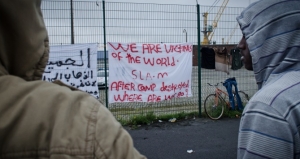 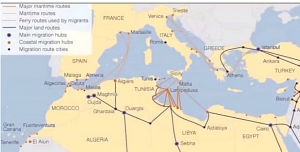 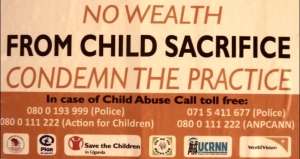 |


